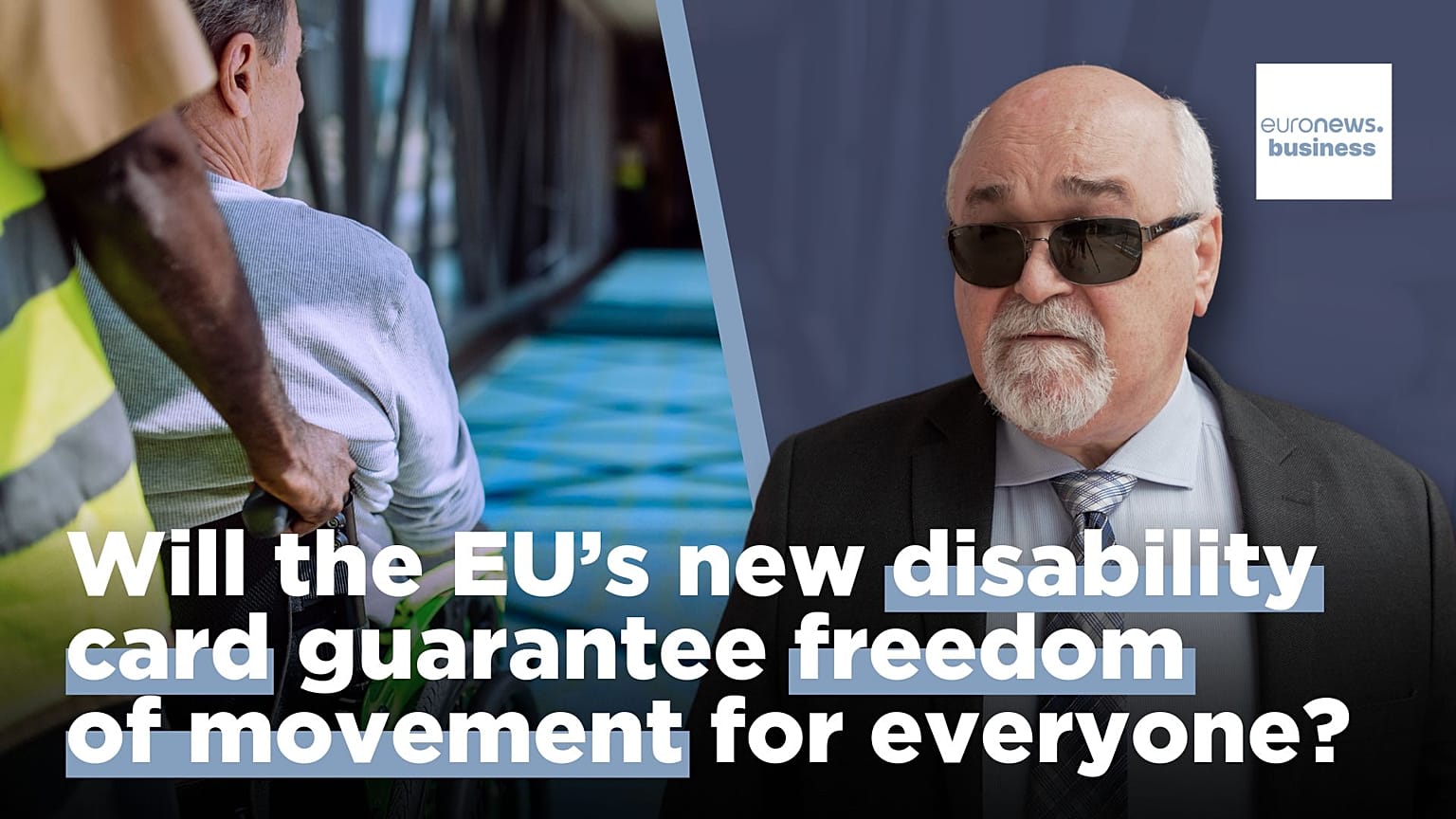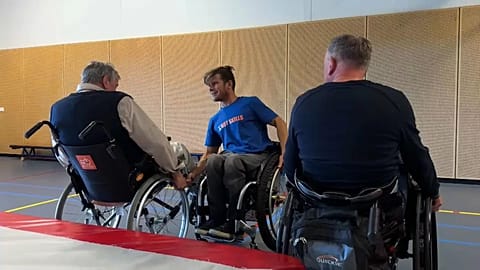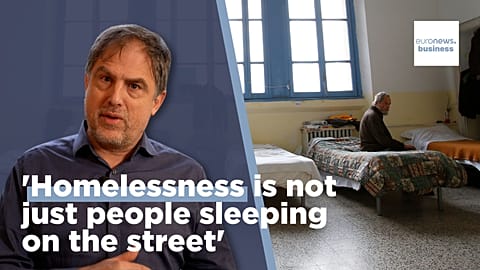Around one in four people over the age of 16 were living with some form of disability in the European Union in 2022. Yet disability rights campaigners say their right to travel between EU member states is limited due to a lack of accessibility and recognition.
“Our disability disappears when crossing the border,” explains Yannis Vardakastanis, President of the European Disability Forum in an interview for Euronews. “When we are moving to another country for a business trip or tourism, for any reason, our disability is not recognised in any way in the other member state.”
To ensure greater mobility and accessibility for persons with disabilities travelling across the European Union, the European Commission has brought forward proposals for a new European Disability Card and an improved European parking card for people with disabilities.
The European Disability Card will serve as proof of disability status across EU countries, enabling cardholders to access special conditions and services such as free entry, priority or personal assistance for trips shorter than three months. It will complement national disability cards, which will continue to be awarded by national authorities, based on their own criteria.
On the other hand, the new European parking card will replace existing national parking cards, guaranteeing access to designated parking spaces and facilities across all member states.
According to Vardakastanis, the cards will make short trips easier but won’t solve the issue of longer stays.
“The cards are the first step. They create more accessible situations for persons with disabilities but they do not solve the real barrier to the freedom of movement, to be able to move, reside, work and live in another member state, like all Europeans, without any barriers on equal terms,” he said.
Currently, if a person with a disability wants to move to another member state, they have to go through an assessment to have their disability recognised there. The process can take up to a year or more to be approved.
The cards will also not change the fact that many places are not accessible.
“Now we are in Belgium and if someone is careful looking around, you will observe that Brussels is not the most accessible city, to say the least, for persons with disabilities - there are steps, bad pavements, not accessible signs, etc, etc - for me, as a blind person, to move alone around using my white cane, or for persons who use wheelchairs, for example, or crutches,” Vardakastanis explained.
Both initiatives are currently under negotiation. Full implementation of the cards across the bloc could take another three and a half years.


















